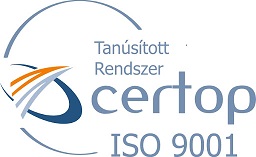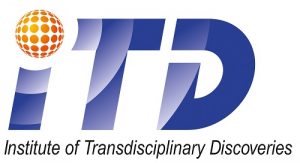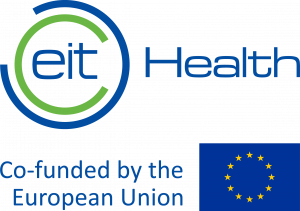Name: Dr. Boglárka Laczy
Date of birth: 21-07-1978
Place and time of graduation: University of Pécs, Faculty of General Medicine, general medicine, Diploma (`summa cum laude'): September 25, 2004.
Research area: Diabetology, Nephrology
I completed my university studies at the Faculty of General Medicine of the University of Pécs. I joined PTE II in 2000 as a third-year medical student. For the nephrology-diabetology working group of the Internal Medicine Clinic, where I started doing scientific student research on the topic ``Pathogenesis of diabetic nephropathy'', I wrote my award-winning dean's thesis entitled ``Development of anemia in diabetes mellitus and chronic kidney diseases''. In 2003, I spent 3 months of internship in Dublin, Ireland with an Erasmus scholarship. I obtained my general medical degree in 2004 with the qualification 'summa cum laude'.
Between 2004 and 2006, I worked as a full-time Ph.D. student in the nephrology-diabetology working group of the clinic under the supervision of Prof. Dr. István Wittmann. My main research activity was investigating the role of oxidative stress in the pathogenesis of diabetic microvascular complications and the endothelium-damaging effect of tobacco smoke. From the research results, I have published numerous first-author and co-authored publications in domestic (e.g. Magyar Belorvosi Archivum, Diabetologia Hungarica) and international (e.g. Endothelium, Acta Diabetologica) journals.
Between 2006 and 2009, I worked as a postdoctoral fellow in the Cardiovascular Disease department of the University of Alabama at Birmingham (UAB) School of Medicine in the research group of Prof. John C. Chatham. I investigated the role of the hexosamine biosynthetic pathway and protein O-GlcNAcylation in the development of diabetic complications and the prevention of ischemia-reperfusion damage to the heart. Here, immunoprecipitation, cell separation, immunohistochemistry, mass spectrometer, and enzyme assay methodologies were set up and/or perfected - they have been used successfully ever since. Thanks to my work abroad, I managed to publish first-author papers in journals such as AJP Heart Circ Physiol, and I was able to attend many international conferences as a speaker.
I can call myself lucky, as it dawned on me early that I was interested in the field of nephrology and diabetology, and I was also lucky when the American research position became available. In addition to luck, I also consider awareness, diligence and perseverance to be important factors. A lucky turn will be lucky if we can take advantage of the given opportunity, which usually requires awareness. My favorite professional achievements: in 2007, the ``Best Publication of the Year'' award from the Hungarian Society of Nephrology (MANET); In 2008 and 2009, he was awarded 'The Joseph Reeves Award for Excellence in Research' for his presentations at the 24th and 25th Trainee Research Symposium of the UAB, Department of Medicine; In 2012, PTE, ÁOK for successful publication activity I. prize in the category of female author under 35 with the most independent references; In 2013, MANET XXX. At his general meeting, "Dr. István Vas” Youth Lifetime Achievement Award;
I have been working as a clinical doctor since 2009 and as a university assistant professor since 2015 at PTE II. Internal Medicine Clinic and Nephrology and Diabetology Center. In 2011, I defended my PhD thesis with the title 'The role of oxidative stress, subclinical inflammation and protein O-GlcNAcylation in diabetes mellitus, ischemia-reperfusion and chronic kidney disease'. I have specialized exams in general internal medicine and nephrology and a diabetology license. In addition to the care of patients in the department, I also provide outpatient services, mainly dealing with the care of diabetic and kidney patients, which is an ever-increasing professional challenge due to the increasing frequency of the number of diabetics and kidney patients. I am still actively involved in the teaching and research work at our clinic. I consider quality education important, as it provides continuous inspiration for my work, I teach Hungarian and English-speaking groups in diabetology, nephrology, internal medicine propaedeutics and internal medicine, to general medicine and dentistry students, as well as college dietetics students. I have been a member of the Hungarian Diabetes Association since 2003, of MANET since 2008, and I am also a member of the European Association for the Study of Diabetes (EASD) and the European Renal Association and European Dialysis and Transplantation Association (ERA-EDTA). I count it as a success if I was able to fulfill the set task to the best of my ability, whether it is a scientific research work, everyday patient care, or education, and I receive positive feedback.
In 2020, I was very happy to be able to join the clinical Champion network organized by the PTE Transdisciplinary Research Institute on behalf of my head of department. From the point of view of our own institute, the program offered an advantageous opportunity to receive authentic strategic guidance with the help of professional consultants to promote innovative solutions in matters related to research, work, or management, with which changes aimed at development can be achieved and are also in line with the mission of the university. Participating in the programs, which were forced into the online space last year due to the Covid pandemic, did not particularly require an additional investment of time, we were able to participate in training modules with easy-to-follow and well-structured topics, announced at tolerable intervals, even with the very busy pace of clinical work. . I can say that the knowledge gained during the workshops is definitely useful. Most of all, it helped me change my perspective on how to think about the functioning of health care, clinical life, and my own work environment, its shortcomings, and the hindering problems, which can be eliminated to achieve better functioning and more efficient work and patient care. The trainings, during which we identified many such challenges, i.e. raised problems and formulated them, provided me with valuable information in terms of the development and methodology of performance plans, which can also be used well in my everyday work. Hopefully, during our future joint cooperation, we can also deal with new topics at the consultations, such as education and research and development. As an operational employee, I recommend the program to all colleagues and clinicians who want to actively promote healthcare innovation solutions.







